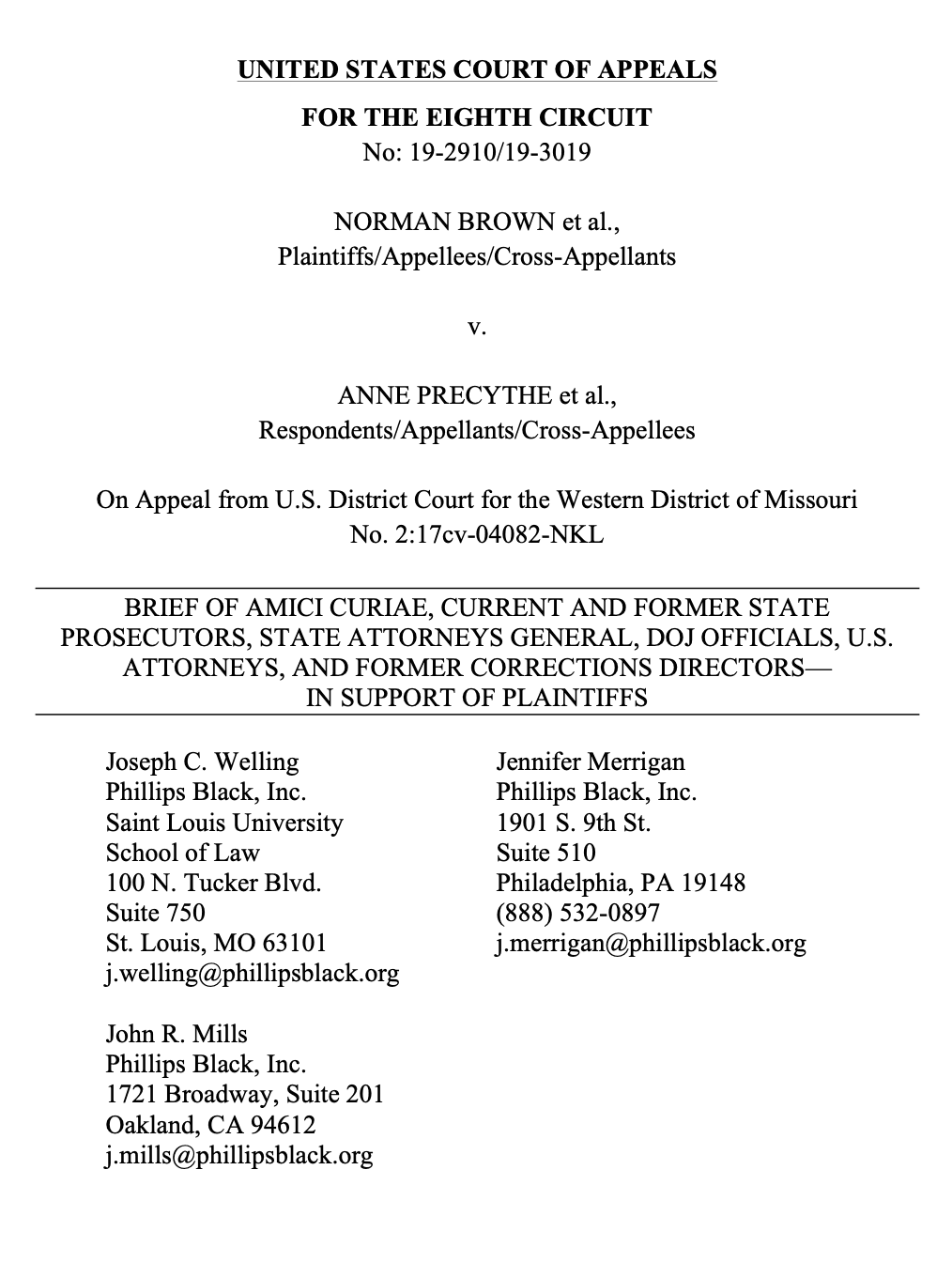
Summary of Argument
Missouri gave effect to Miller by offering parole eligibility to youth sentenced to life without parole who have served twenty-five years. The key question for the parole board—whether the person before it has matured and been rehabilitated—is both required by Miller and aligns with amici’s interest in ensuring public trust and safety and fostering healthy communities. A mature and rehabilitated youth does not pose a substantial public safety risk, while arbitrarily denying such a youth his constitutional rights and the opportunity to reenter the community erodes public trust in the judicial system. And providing class members with fundamental due process guarantees will ensure that the parole board has before it a sound basis for assessing risk.
Class members have a vested liberty interest in the possibility of release upon a showing of maturity and rehabilitation. This is because their sentences are unconstitutional unless parole processes provide a meaningful opportunity to obtain release upon such a showing. That is, under Missouri’s procedures, the only opportunity for an individualized assessment of whether class members are eligible for parole and not left to die in prison will be before a parole board. For that reason, the parole board must assess whether the person before it has matured and been rehabilitated. In reaching its decision, the parole board must afford these individuals fundamental aspects of due process of law.
Amici recognize that it is incumbent on prosecutors to correct the injustices the Court recognized in Miller and to do everything within their power to protect the integrity of the justice system. The mandate of the criminal justice system is not finality for its own sake, but the pursuit of justice. Here, where an individual is serving an illegal sentence, the failure to provide basic due process protections is inherently unjust and erodes public trust in our justice system.